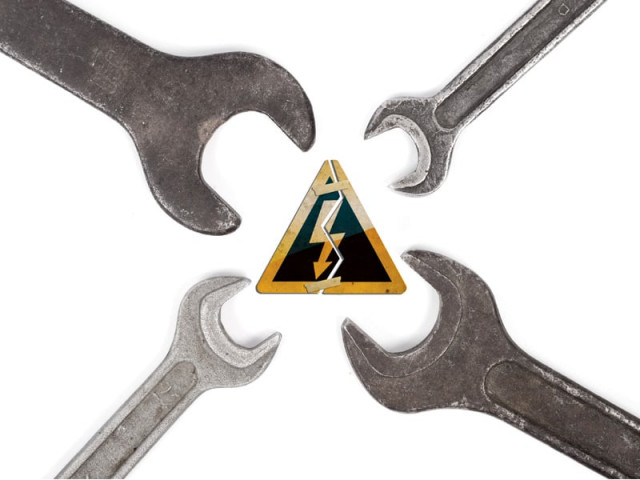Infrastructure spending: With US help, power grid to get ‘smart meters’
A $60m programme is set to help power companies collect bills, reduce circular debt.

Pakistan and the United States on Monday agreed to a programme where Washington would spend $60 million in financing the installation of ‘smart meters’ on the national electricity grid, in a bid to help power companies accurately book their revenues and collect bills from consumers, helping eliminate one of the major sources of financial leakages in the power sector.
At a ceremony in Islamabad, the chief executives of all nine power distribution companies in the country met with officials from the United States Agency for International Development (USAID) to sign an agreement to that effect.
The single biggest problem in the energy sector in Pakistan is that of circular debt – the nearly Rs400 billion in financial liabilities owed by energy companies to each other. This problem has piled up for two reasons: firstly because the government does not pay the subsidies it promises consumers, and secondly because there are approximately Rs300 billion in outstanding power bills that have simply not been paid by consumers.
The automated meter readers – or ‘smart meters’ – would have the ability to charge varying tariffs for different times of day, allowing the power company to charge higher rates for peak hours and lower rates for non-peak use of electricity.
The meters would also be able to communicate the consumption information directly to the power companies without the need for a manual checking of the meter. Since many consumers often collude with power company employees who come to read meters, having an automated system would cut out a big source of leakages.
The ability of the power companies to collect the full bills would reduce the amount of money they need to claim as a subsidy, which in turn would reduce the circular debt and allow power generation companies to produce at higher capacities, thus reducing the durations of the nationwide power outages. This fact was alluded to by the US officials present at the signing ceremony.
“Every consumer wants a reliable and efficient power supply and by improving the collection of energy bills, power distribution companies will have more money to pay for the power generation, thus reducing the load shedding in the country,” said John Morgan, the director of the USAID energy office.
Interestingly, Morgan estimated that about one-third of the electricity produced in Pakistan is not paid for – either through wastage due to faulty power lines, or theft or unpaid bills. This number is considerably higher than the 22% that the government of Pakistan estimates is lost on the national grid. It is unclear if USAID and the water and power ministry used the same methodology to calculate just how much electricity is wasted.
Energy reforms have been a sticking point between Islamabad and its donors, with the government unwilling to reduce its footprint in the energy sector. Indeed, it was Pakistan’s refusal to end electricity subsidies and reform the power sector that led to the 2011 budget deficit target not being met, causing the International Monetary Fund to suspend the last two tranches of its bailout programme, which Islamabad ultimately exited without completing.
The USAID programme seems geared to improve the efficiency of the overall system, and make reforms easier. But the government insists that the reform process has not been abandoned and is still on track.
“The reform process of the power sector has not been rolled back,” said Water and Power Secretary Imtiaz Qazi. “We have sent recommendations for the appointment of professional chief executives for three [state-owned] power distribution companies to the cabinet for approval. This process will be completed soon.”
He added that the United States would help the government audit the efficiency of the energy sector.
Published in The Express Tribune, January 10th, 2012.


















COMMENTS
Comments are moderated and generally will be posted if they are on-topic and not abusive.
For more information, please see our Comments FAQ